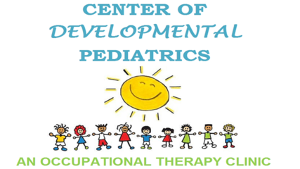starstarstarstar
star_borderstar
4.7 stars | 19 reviews
starstarstarstar
star_borderstar
4.7 stars | 19 reviews
All Reviews
Failed to load reviews.
I cannot recommend CDP enough! They are experts in their field and working with them is a joy. Becky and Jessica have made such a positive impact and are great at keeping communication open between parent and therapist.
Becky and her team are as compassionate as caring. Our family is thankful for the work they put in and the way they incorporate goals by making OT fun. Our family has benefited from this team.
We love this place. My son has been attending for ~1yr and it has helped him tremendously. I highly recommend it
We have had several of the therapists and their expertise and knowledge of what my son needs has helped us immensely at home and at school. Thank you Becky for educating us and our teachers to help our kids.
Failed to load reviews.
Fetching...
Displaying 1 - 5 of 19

